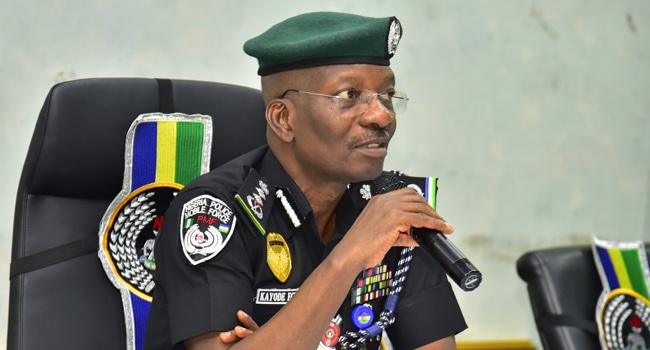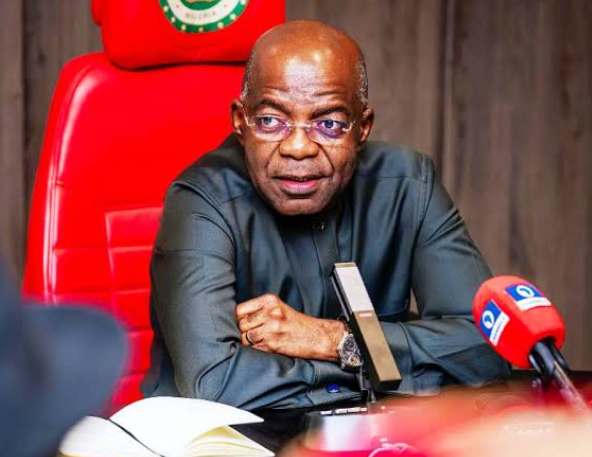
Police Sweep Begins: Nationwide Shock as Authorities Start Withdrawing VIP Security on Tinubu’s Orders

Nigeria woke up to a wave of tension, uncertainty, and mixed emotions as the Nigeria Police Force began implementing President Bola Tinubu’s directive to withdraw police officers attached to Very Important Persons (VIPs). The move, which had been the subject of quiet debates within security circles for months, finally kicked into gear this week, signaling a major shift in the nation’s approach to policing, resource allocation, and internal security management. For years, Nigerians have voiced concerns over the lopsided deployment of police personnel, with thousands assigned to guard politicians, wealthy individuals, and other privileged citizens while communities across the country battled rising insecurity with insufficient manpower. The president’s decision, though controversial, is being interpreted by many as a bold attempt to rebalance the system and redirect security resources toward protecting the general public.
Reports from across several states indicate that police officers previously attached to senators, members of the House of Representatives, influential business magnates, traditional rulers, and other categories of VIPs have begun receiving official notices to return to their base formations. In some cases, officers were recalled abruptly, leaving shockwaves in political circles, especially among those who had relied heavily on police escorts for daily movement. Inside sources within the force confirmed that the directive is being carried out in phases, starting with individuals who do not meet the “critical threat threshold” as determined by a new security assessment committee set up by the presidency. This committee, according to insiders, reviewed hundreds of security profiles before issuing recommendations on whose protection should be reduced or completely withdrawn.
In Abuja, reactions were immediate. Several lawmakers reportedly expressed frustration, describing the move as sudden and poorly timed. Some argued that the political climate remains volatile and that withdrawing security details now exposes them to avoidable risk. Others quietly welcomed the decision but worried about backlash from supporters who may interpret the withdrawal as a sign of weakening influence. Civil servants who work closely with these political officeholders noticed an unusual shift in routines as convoys thinned out and movement became less dramatic.
But on the streets, the mood is noticeably different. Many Nigerians have hailed the action as long overdue, pointing out that police officers are government property, not private bodyguards. For years, advocates of police reform have argued that Nigeria’s policing structure had been undermined by the removal of officers from core duties to babysit privileged elites. In some communities, a single police station struggled with fewer than 10 operatives, while dozens more were assigned to escort politicians who already enjoyed backup private security. Critics described it as an imbalance that allowed insecurity to flourish in many regions, especially in rural communities and urban hotspots plagued by robbery, kidnapping, and violent clashes.
Human rights groups also took note of the development. While many praised the administration for taking what they described as a “courageous step toward uniform security fairness,” they raised questions about how the withdrawal would be managed to ensure that officers are properly redeployed rather than left idle. Several advocacy groups emphasized that Nigeria suffers from a chronic shortage of active police personnel on the streets, and the recall of hundreds — possibly thousands — of officers could boost security visibility if properly implemented. They stressed the need for transparency in how the redeployed officers would be reassigned to patrols, intelligence units, and community policing operations.
Security experts have also been weighing in. Some analysts argue that while the policy direction is commendable, its execution will determine whether it becomes a turning point or a temporary disruption. According to them, VIP protection units exist not because of luxury but because of Nigeria’s political realities, where high-ranking officials are often targeted for assassination or political intimidation. They warn that abruptly removing officers without proper risk evaluation could lead to unintended consequences, including increased vulnerability of certain individuals who face legitimate threats. However, many experts still insist that the country cannot afford to continue diverting police manpower disproportionately to a small group of privileged citizens while the broader population remains underprotected.
Meanwhile, inside police barracks, the recall has sparked a mix of relief and anxiety. Some officers reportedly welcomed the development, saying they would prefer regular duty over being assigned to VIPs who sometimes mistreat or underpay them. For years, stories circulated about officers attached to wealthy individuals being forced to perform tasks far outside their mandate, including domestic chores, errands, and menial labor. With the new policy, many officers believe they will regain dignity and be able to contribute meaningfully to national security operations. But others fear the uncertainty of new postings, especially to volatile regions or crisis-prone states where safety risks are significantly higher.
Political analysts say the move could also reshape Nigeria’s power dynamics. VIP convoys have long been symbolic of status, influence, and reach. Reducing them not only changes public perception but also forces many officeholders to adjust to a more modest security profile. Some insiders believe this is part of the president’s broader strategy to cut costs, enforce discipline, and reduce what many see as the excessive privileges enjoyed by public officials. It also sends a message that the era of uncontrolled police assignment to private individuals may be coming to an end.
In Lagos, Port Harcourt, Kano, and other major cities, residents reported seeing fewer VIP escorts on the highways. Traffic analysts have noted that the reduction in heavily armed convoys has improved the flow of vehicles in some congested areas where VIP movements previously caused repeated disruptions. For many Nigerians, this alone is a welcome relief from the frustration of being forced off the road or delayed for long periods due to heavy security escorts accompanying influential figures.
The presidency, through senior aides, has defended the directive, insisting that the decision is not only legal but necessary for national security. They argue that police resources must be used where they are needed most, especially at a time when Nigeria continues to grapple with terrorism, kidnappings, banditry, and rising criminal activities in various regions. According to the administration, the country cannot effectively combat insecurity when a huge chunk of its police workforce is tied up in VIP protection instead of frontline duty.
However, questions remain about whether the implementation will be sustained. Previous administrations attempted similar reforms but later succumbed to political pressure, gradually restoring withdrawn officers to influential individuals. Many Nigerians are now watching to see whether President Tinubu will stand firm, especially as the policy may upset powerful allies and political heavyweights who are accustomed to large security entourages.
As the rollout continues, public debate has intensified. Radio discussions, social media threads, and community conversations reveal a nation both anxious and hopeful. Some fear that VIPs without proper security could become targets, creating new security problems. Others argue that equality in policing must begin somewhere and that the privileged few cannot continue to monopolize security resources while ordinary citizens suffer.
Ultimately, the fate of this ambitious policy rests on consistency, fairness, and strategic implementation. If fully enforced and properly managed, it could become a defining moment in the nation’s march toward police reform and a more balanced approach to public safety. But if undermined or selectively applied, it may become yet another failed attempt at correcting a long-standing imbalance. For now, Nigerians are watching closely as the police sweep gathers momentum, signaling what may be the beginning of a new era in the nation’s security architecture.


